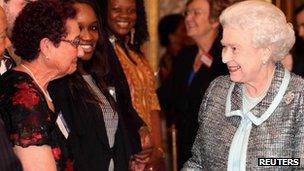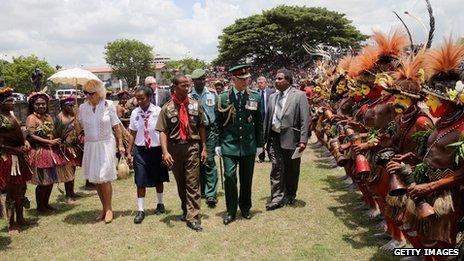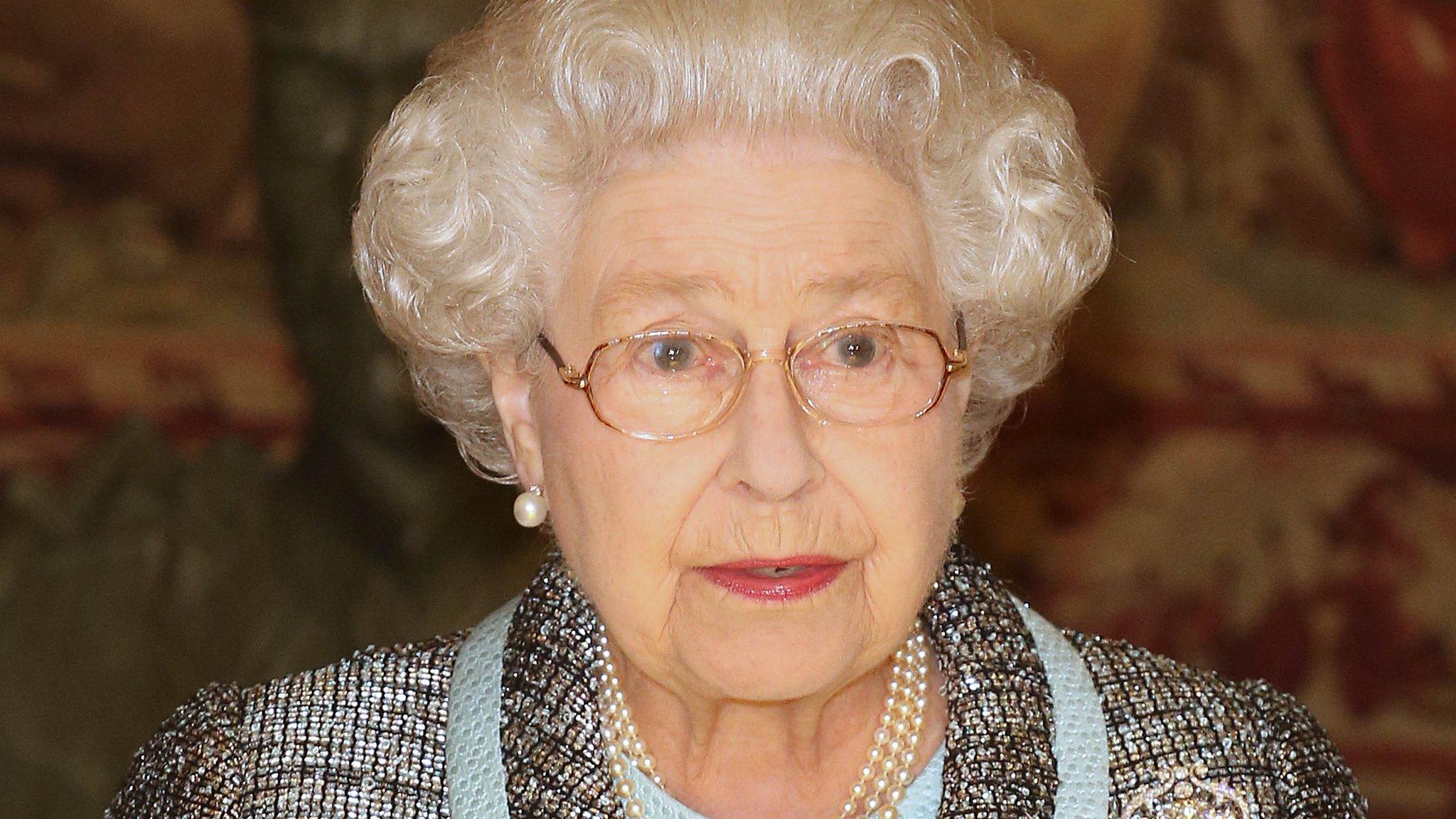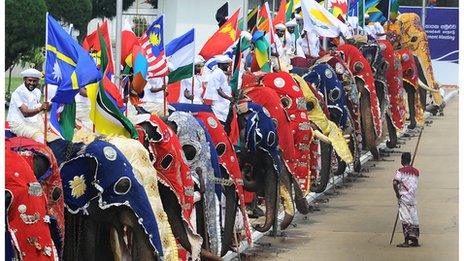Who will lead Commonwealth next?
- Published

The Queen is said to enjoy her 'unfettered' role as head of the Commonwealth
The focus, understandably, was on the Queen's appearance, not on the words she uttered.
After a week of cancelled appointments, Monday night's Commonwealth reception was the first time the 86-year-old monarch had been seen and heard in public.
On the surface, the event was held to launch the new Commonwealth Charter which outlines the organisation's key principles.
But beneath the surface - in a blink and you'd probably have missed it - were hints about the possible future direction of this body borne out of the demise of the British Empire.
The Queen took on the position of symbolic head from her father. It has afforded her a continued global role.
The former foreign secretary, Douglas Hurd, has spoken of it being a "vivid part of her life". In the words of one who used to work with the Queen: "Her role is unfettered. She likes that."
But who will succeed her? It was once accepted that Prince Charles would not automatically become Head of the Commonwealth.
'Thoughtful words'
The website of the Commonwealth Secretariat used to state this fact very clearly. In the last day or two, that reference has been removed, though officials insist it is still up to the leaders of the 54 countries to decide who will, one day, replace the Queen.
Which brings us to the hints at Monday night's reception.
The secretary general, Kamalesh Sharma, spoke of how Prince Charles's support for the Commonwealth (and that of other royals) had "deepened" its links to the Crown.
For her part, the Queen thanked Mr Sharma for his "thoughtful" words about the "enduring value" of this bond.
Those around the Commonwealth secretary general argue his speech was all about honouring the Queen.

Will he won't he? The question is, will Charles (seen here in Papua New Guinea) become head of the Commonwealth?
But her aides believe this was the first sign that this voluntary association of countries - the vast majority of which were once under British rule - is moving towards there being a natural succession from sovereign to heir.
To understand the importance for Charles of this being resolved, one has to reflect on the alternative.
When he becomes King he could well face criticism of his style of operating - Jamaica, Australia and other realms may use the moment to move on and seek a home-grown head of state - and he could be subjected to days of questions being asked about his suitability for the post of head of the Commonwealth.
If the question is resolved in advance, in his favour, it would bolster the reign of Charles as King. The alternative could undermine it.
In the past, the Queen's eldest son was thought to have displayed a lack of enthusiasm for an institution which his mother has championed even when her government-of-the-day has been less keen.
Now, his office insists it is something he actively supports, having visited 33 member countries.
Critics of any move to secure the Commonwealth role for Charles are likely to maintain, as they have in the past, that an unelected head of state is not an obvious 21st century figurehead for an association that espouses the virtues of democracy.
The hints and the discussions behind closed doors are all about the legacy of a mother and the future of her eldest son.
- Published11 March 2013

- Published24 August 2017
